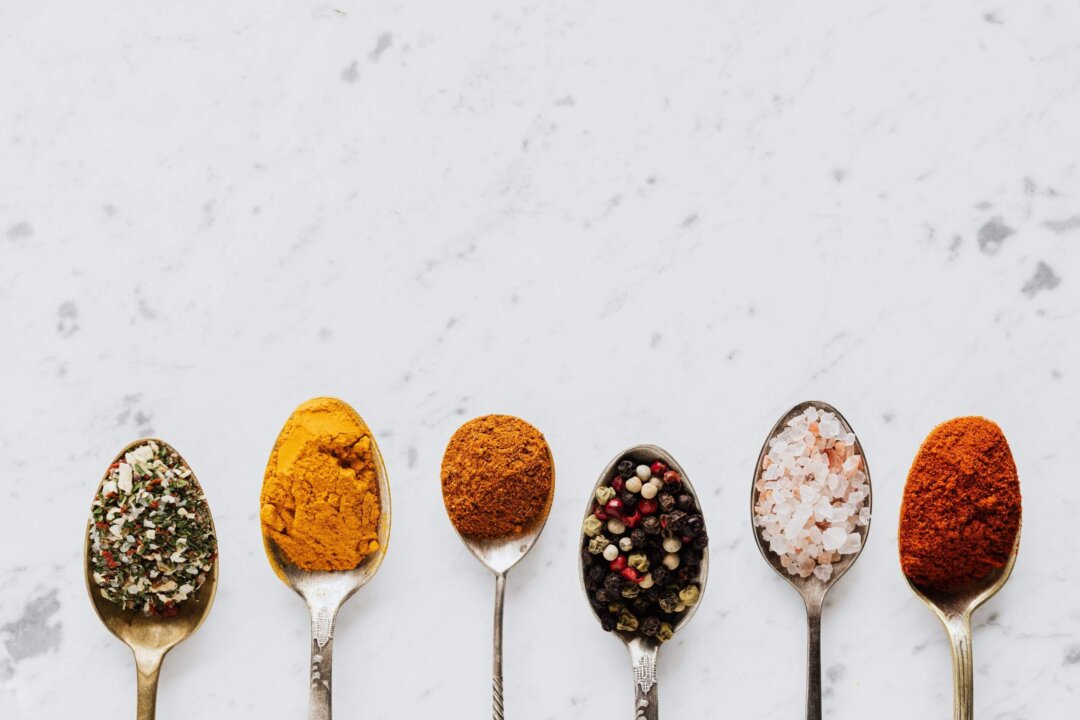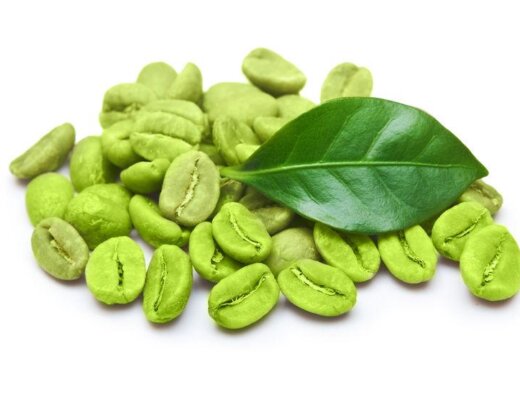An eating plan that gives guidelines for when you eat, how you eat, and what you eat to boost your overall health, manage and prevent disease, and helps in maintaining wellness is an Ayurvedic diet.
If you follow an Ayurvedic diet, you eat minimally processed foods that mean whole foods and also practice mindful eating habits.
The diet is based on the Indian Ayurvedic wellness system that is a thousand years old.
The studies on Indian Ayurvedic lifestyle practices shows that it can help to improve our health
Background
The word “Ayurveda” came from a combination of two Sanskrit words Ayur meaning life and Veda meaning science hence known as “the science of life”.
This wellness practice is 5000 years old and has its origin in India.
Ayurvedic medicines help the body in creating a strong and healthy set up through a series of diet, lifestyle practices which include sleep and mindful living and exercise.
Ayurveda is an Indian system of alternative medicine that is based on a holistic and natural approach.
It has not only cured all physical health issues but also improves overall mental health. Many people consider Ayurveda to be the best healing science in the world.
It states that all disease come from an imbalance diet in our bio-elements or as they call as ‘Doshas’
But what is an Ayurvedic diet?
An ayurvedic diet is based on the Ayurveda medical system which provides guidelines on what to avoid eating and what to eat.
The ultimate goal is to improve health by creating a balance in your body. This will also help to manage the disease.
The ayurvedic diet will help you to pick the right food like eating fresh foods instead of heavily processed foods.
It’s also about mindful eating and understanding how good that food is for your body.
How does it work?
Ayurveda says that you face health problems due to an imbalance in your bio elements or doshas.
In Ayurveda, the universe is made up of five elements that are space (Akash), water (Vayu), earth (Prithvi), fire (Teja), and air (Vayu).
It is believed that these elements form three different types of doshas. They are Kapha dosha (earth and water), Pitta dosha (fire), and Vata dosha(air).
Every individual exhibits a unique set of energies according to their physical, emotional and mental health.
These energies circulate in our bodies and are responsible for specific functions in the human body.
In the Ayurvedic diet, we can also evoke each energy to rebalance with certain foods. hence we need to find the type of energy we have and realize the one which is out of balance.
The imbalance of energy can be known through our health problems.
- Vata (Air).:-responsible for autonomic functions like blood circulation and breathing. It is also responsible for movement and electrolyte balance. Balanced Vata leads to creativity and vitality. Unbalanced leads to depression and anxiety.
- Kapha (water and earth):-Responsible for growth and joint function. Balanced Kapha leads to love and compassion. Unbalanced Kapha leads to jealousy and insecurity.
- Pitta (fire): Controls body temperature, and metabolic functions. Balanced pitta leads to intellect and unbalanced leads to anger.
These three energies are present in all of us but only one of them is dominant. Hence the food you should eat depends on the dominance of your dosha. The Ayurveda has six tastes.:
- Salty: As in meats, salt, sauce fish, soy.
- Sweet: As in rice, pasta, sugar, starches, honey, grains, bread, dairy, chicken.
- Bitter: As in green and yellow vegetables, leafy vegetables, kale, celery, broccoli, beets, sprouts.
- Pungent: As in chilies, cayenne, ginger, onions, garlic, mustard, cloves, black pepper.
- Sour: As in pickled food, citrus, berries, tomatoes, and alcohol.
- Astringent: As in cauliflower, lentils, dried beans, apples, pomegranates, and herbal tea.
Depending on your dosha, you should choose a given type of food.
a.) If your dominant dosha is Vata: An imbalance in Vata can cause digestive issues like stomach ulcers.
To balance Vata, you should eat sweet, salty, and sour foods. You should include cinnamon, citrus, basil, cloves, sage, lavender, canella, and pine in your diet. Avoid having cold and raw foods.
b) If your dominant dosha is Pitta: An imbalance in Pitta can cause high blood pressure, heartburns, anger, and irritability.
Avoid spicy and very hot foods. Eat sweet, bitter, and astringent tasting foods. One should include lavender, jasmine, mint, sandalwood, and fennel in their diet.
c) If your dominant dosha is Kapha: An imbalance in Kapha can cause weight gain and allergies, among other things.
To balance Kapha, avoid dairy, salt, and heavy foods. Eat foods that taste pungent, bitter, and astringent.
Add to your diet herbs like cloves, juniper, marjoram, and cinnamon.
What are the benefits?
There are guidelines for each dosha in an Ayurvedic diet. In the beginning, they may seem to be complex, but if you go through proper recommendations, you will find a guiding principle.
Regardless of your energy type, the Ayurvedic diet encourages healthy eating as it includes fresh vegetables, fruits, and grains.
All these food items include all essential nutrients required by our body. This diet also encourages to minimize processed foods as they lack in dietary fiber and other vitamins.
Various studies show how an Ayurvedic diet can help achieve a healthy weight.
It may also help to minimize illness caused by various diseases and promote good health and wellness.
The main benefits are as follows:
- Healthy hair and glowing skin: Ayurvedic diet focuses more on antioxidant foods as it includes proteins, herbs, and vegetables. They are all important for healthy skin and contain important nutrients to prevent aging .
- Maintenance of weight loss: The Ayurvedic diet can be helpful for weight loss.Following the Ayurvedic diet can help you to maintain your weight and get a toned body and better health.
- Inflammation control: Unhealthy food, no proper diet, bad digestion, and unhealthy routines can lead to inflammation. This is the cause of neurological diseases, cardiovascular problems, arthritis, diabetes, and pulmonary disease. The Ayurvedic diet features soothing foods and mindful eating practice so it contributes to the improvement of your emotional state and systemic inflammation. Other foods may also flush out toxins, helping our body eliminate them naturally.
- Become stress-free: Ayurveda include breathing exercises, yoga, massages, and Ayurvedic treatments with herbs. They contribute to reducing your stress if you live an Ayurvedic lifestyle. They are also helpful in fighting depression and other mental health issues by reducing stress through meditation and practicing mindful eating habits.
Overall, we can see that the Ayurvedic diet can improve our health,promote weight loss and encourage our intake of fruits and vegetables thus leading to happy wellness.
What are the drawbacks?
The Ayurvedic diet also has a few drawbacks that we need to consider.There are many products labelled as ayurvedic but they do not follow Ayurveda principles.
There are fake Ayurvedic physician with fake certification.So one needs to be careful and make sure you are in good hands.
One can learn about the Ayurvedic diet but at times it can be confusing as you might not be able to understand your doshas and the complexity related to food items.
There is not a specific list of foods we should all add to our diets. Instead, we are encouraged to find our own application.
However the ayurvedic diet can be challenging as recommendations related to food can change during the the year due to change in season.
It sometimes feel restrictive as depending on your dominant dosha,you may need to cut down on an entire food group from your diet.
So,it may be not easy for a person if your favourite food items are in that prohibited list.
Doshas are based on mental and physical traits. You can’t really measure those in tests or lab studies.
Actually, there is no scientific evidence about doshas and how they determine what you should eat.
Different people can give different opinions about your doshas.
What foods to eat
In the Ayurvedic diet, your dosha can be healed by eating the correct food items for your body and mind. So, here’s the list of foods to eat based on your dominant dosha:
- Pitta:
- Fresh fruits: Sweet fruits like bananas, pineapples, and mangoes are the most important in this category. You can also eat pear, orange, and melon.
- Fresh vegetables: Bitter or sweet vegetables, as in sweet potatoes and carrots, leafy green, cauliflower, cabbage, cucumber, celery, zucchini, and Brussels sprouts.
- High-protein foods: Especially egg whites and tofu.
- Milk and dairy: Including whole milk, butter, and ghee.
- Legumes and grains: You can eat most beans, including moong beans, black beans, kidney beans, lentils, and chickpeas. Grains such as oats, wheat, and barley.
- Nuts and seeds: flax seeds, pumpkin seeds, or sunflower seeds can be taken in small quantities.
- Spices and herbs: Use spices like cilantro, turmeric, cinnamon, black pepper, cumin, and dill.
- Vatta:
- Fresh fruits: Sweet fruits are the most important in this category, like bananas, mangoes, and strawberries. You can also eat blueberries, grapefruit, plums, and peaches. Fresh vegetables: carrots, cauliflower, cabbage, cucumber, celery, leafy greens, zucchini, sweet potato, and Brussels sprouts.
- High-protein foods: Especially seafood due to its healthy fat content, and tofu. You can also eat small amounts of poultry.
- Milk and dairy: Including whole milk, butter, cheese, and ghee.
- Legumes and grains: The best legumes in this group are mung beans, lentils, and chickpeas. Also, grains such as oats and cooked rice.
- Nuts and seeds: You can eat walnuts, almonds, pistachios, flaxseed, chia seed, and sunflower seed.
- Spices and herbs: Spice your foods with cumin, basil, oregano, black pepper, thyme, cloves, ginger, and cardamom.
- Kapha:
- Fresh fruits: The best fruits in this group include pear, apple, blueberry, cherry, and pomegranate. You can also eat dry fruits, such as raisins, prunes, and figs.
- Fresh vegetables: potatoes, mushrooms, onions, asparagus, okra, radish, and leafy greens.
- High-protein foods: Egg whites and seafood. You can eat small amounts of poultry.
- Milk and dairy: skimmed milk, soy milk, and goat milk.
- Legumes and grains: chickpeas, lentils, black beans, and navy beans. Also include oats, corn, barley, rye, millet, and buckwheat into your diet.
- Nuts and seeds: Choose between flax seeds, pumpkin seeds, or sunflower seeds but eat in small quantities.
- Spices and herbs: Cinnamon, basil, oregano, thyme, turmeric, cumin, black pepper, and ginger.
What foods to avoid:
Depending on your Ayurvedic dosha you should not be eating certain foods. There’s a recommendation for all doshas. A real Ayurvedic diet does not include any fizzy drinks, canned foods, convenience foods, or fast food.Similar to a vegan diet, and regardless of your dosha, you should not consume red meat.So depending on your dosha, there are some fresh foods you might also want to avoid. Here’s a list for you to consider, according to your dosha:
Pitta:
- Fresh fruits: Sour fruits like sour cherries, apricot, and grapes should be avoided. Also, avoid papaya and grapefruits.
- Fresh vegetables: Avoid chili peppers, tomatoes, eggplant, onions, and beets.
- High-protein foods: Avoid seafood, red meat, and egg yolks.
- Milk and dairy: Avoid eating cheese, buttermilk, and sour cream.
- Legumes and grains: Avoid brown rice, corn, millet, and rye.
- Nuts and seeds: Do not eat cashews, almonds, peanuts, and pistachios. sesame seeds and pine nuts.
- Spices and herbs: Avoid spices that are not included in the white list above.
Vata:
- Fresh fruits: Avoid dried and light fruits, including raisins, pomegranate, cranberry, and pear.
- Fresh vegetables: Don’t eat raw vegetables. Some cooked vegetables like cauliflower, broccoli, and cabbage should also be avoided. Stay away from tomatoes, potatoes, and mushrooms, too.
- High-protein foods: Do not eat red meat.
- Legumes and grains: Avoid black beans, navy beans, and kidney beans, rye, corn, millet, quinoa, barley, and buckwheat.
- Spices and herbs: Avoid astringent or bitter herbs, coriander seed, and thyme.
Kapha:
- Fresh fruits: avoid bananas, mangoes, coconut, and fresh figs.
- Fresh vegetables: Avoid sweet potatoes, zucchini, cucumber, and tomatoes.
- High Protein foods: Avoid red meat
- Legumes and grains: Avoid miso, kidney beans, soybeans, rice, cooked cereals, or wheat.
- Nuts and seeds: Do not eat cashews, pine nuts, walnuts, Brazil nuts, and sesame seeds.
you need to balance the way you eat as the Ayurvedic diet is about maintaining a dosha balance in the body. The following rules should be undertaken while following this diet:
- Try to eat at the same time each day to stay consistent.
- Avoid skipping meals
- Eat until you feel full.
- drink warm water and avoid cold drinks during meals.
- Chew your food properly for better digestion.
As you eat, mindful eating is essential. Mindful eating involves being fully conscious of your senses, such as taste and smell.
When you keep away intrusive thoughts during your meal, you can enjoy the act of chewing, tasting, and swallowing food.
This gives you a connection between your food, your senses, mind, and emotions.





No Comments